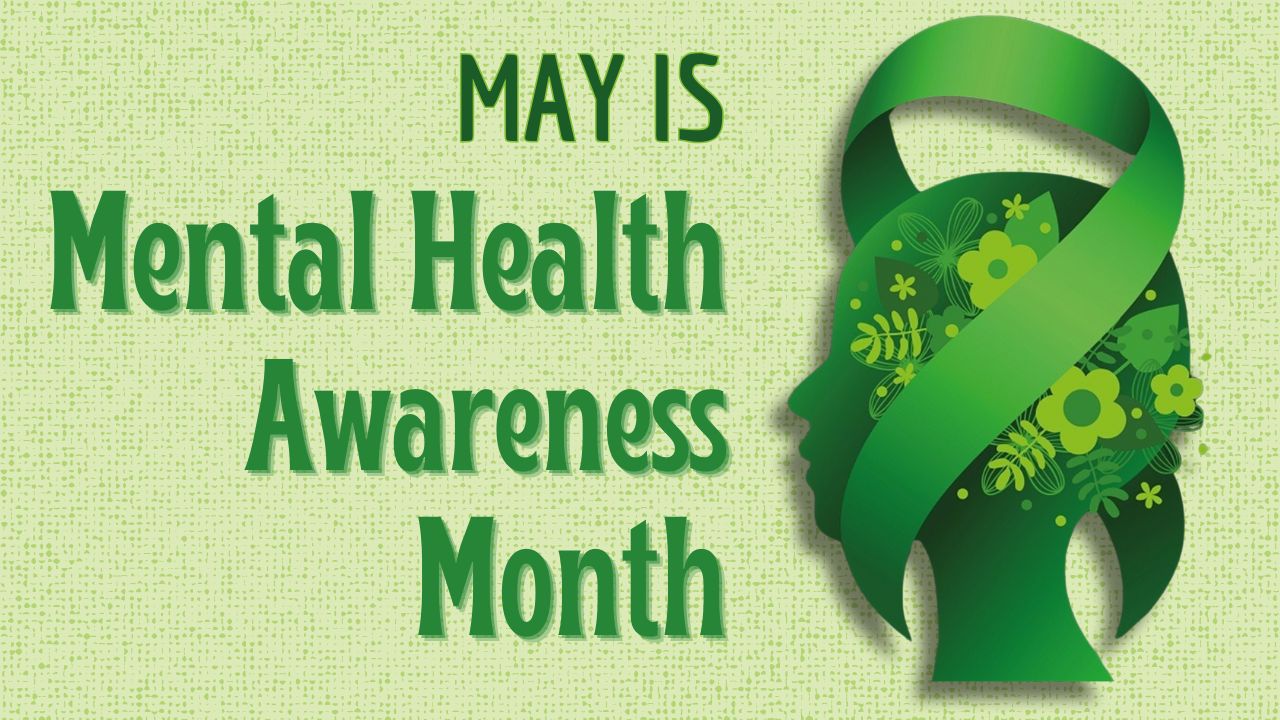Mental Health Awareness Month
May 2025
What is Mental Health Awareness Month?
As we welcome the month of May, we also welcome Mental Health Awareness Month, an opportunity for all of us to reflect on the importance of mental well-being—not just for ourselves, but for those we support every day.
Mental health is just as important as physical health, and we encourage this month as an opportunity to have open conversations, reduce stigma, and support well-being. Mental health challenges are more common than many realize. Each year, between 20 to 25 percent of people in the United States experience a diagnosable mental or behavioral health condition. That’s roughly one in every four to five individuals. These statistics are a powerful reminder of how widespread these conditions are, and why awareness and compassion are so essential.
It’s also important to recognize that mental and behavioral health issues can be especially difficult to detect in people who experience intellectual or developmental disabilities. For a variety of reasons, these conditions may be underreported, misdiagnosed, or overlooked. However, that doesn’t mean they aren’t present. Often, people who experience disabilities may not be able to express their feelings in the ways we expect. Instead, we must pay close attention to changes in their behavior and daily routines.
One of the key things to watch for is a sustained and significant departure from a person’s usual behavior. This doesn’t refer to the occasional bad day. Rather, it includes consistent changes that last for two weeks or longer. Examples might include withdrawing from a community activity they used to enjoy, refusing to eat a favorite food, or showing difficulty getting out of bed in the morning. These changes may be signs that the person is experiencing emotional distress or struggling with their mental health in a way they may not be able to explain.
In our roles as supporters, caregivers, and advocates, it's critical that we stay observant and open-minded. Not every mental health concern will come with a clear sign or verbal expression of worry, sadness, or anger. Often, the signs come through behavior and patterns of daily life. When we take time to notice and respond to these signs, we create a more supportive, inclusive, and understanding environment for everyone.
If you notice any ongoing or concerning behavioral changes in the lives of the people we support, please reach out to at Hope, we encourage you to reach out to Hope’s Behavioral Health Clinic. Our team is here to provide guidance, support, and care tailored to the unique needs of each person. Help us promote mental wellness and ensure that no one feels alone in their journey.
Mental Health Resources for Alaskans
If you or someone you know in Alaska is in need of mental health support, the following resources are available:
-
Alaska 988 Suicide & Crisis Lifeline
Call or text 988 for free, confidential support available 24/7
Website: 988lifeline.org -
Alaska Mental Health Trust Authority
Offers funding and advocacy for mental health services across the state
Website: alaskamentalhealthtrust.org -
NAMI Alaska (National Alliance on Mental Illness)
Provides education, support groups, and advocacy for individuals and families affected by mental illness
Website: namialaska.org -
Careline Alaska
Alaska’s 24-hour crisis intervention and suicide prevention line
Phone: 1-877-266-HELP (4357)
Website: carelinealaska.com -
Alaska Behavioral Health
Community-based services including therapy, case management, and psychiatric care
Website: alaskabehavioralhealth.org



